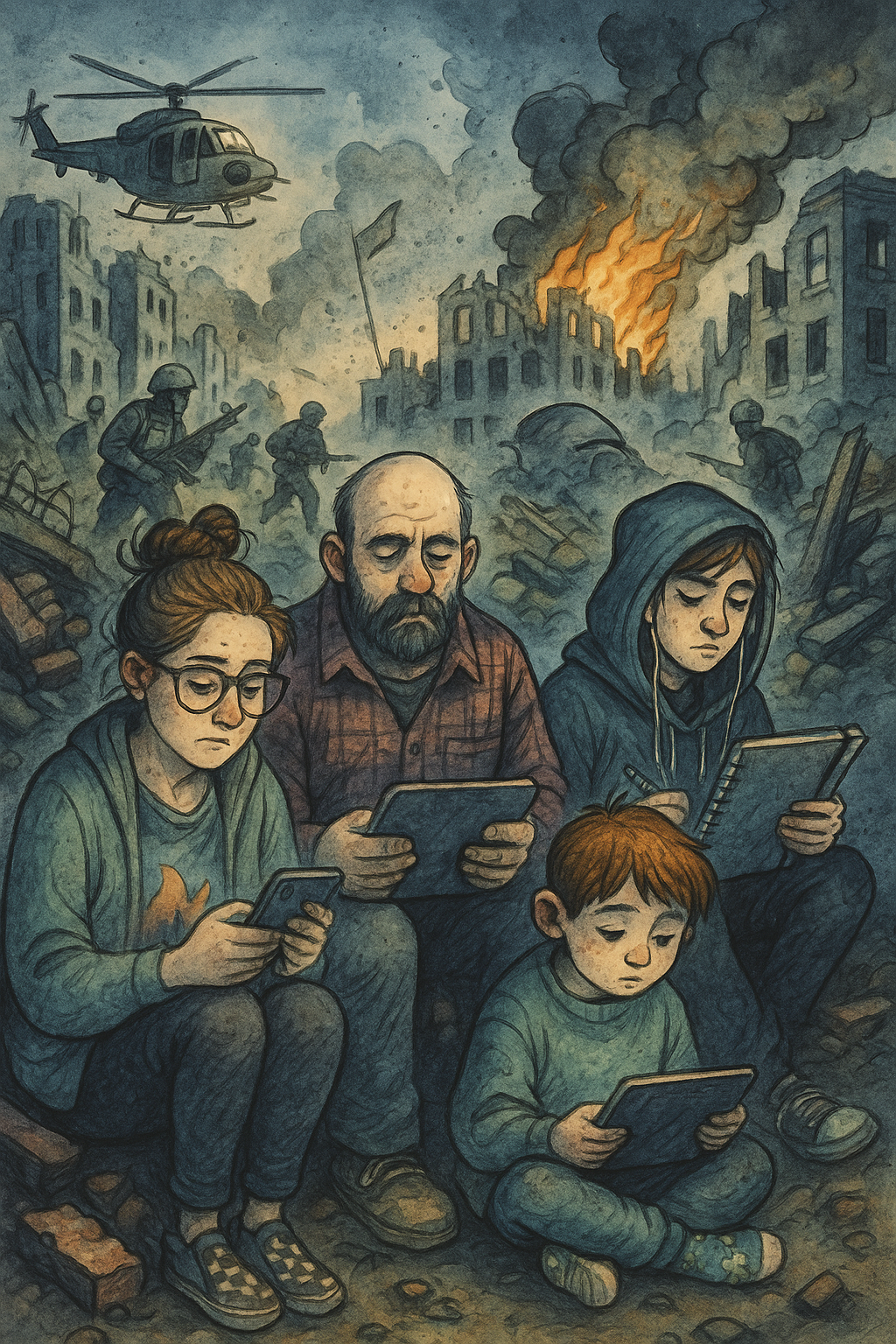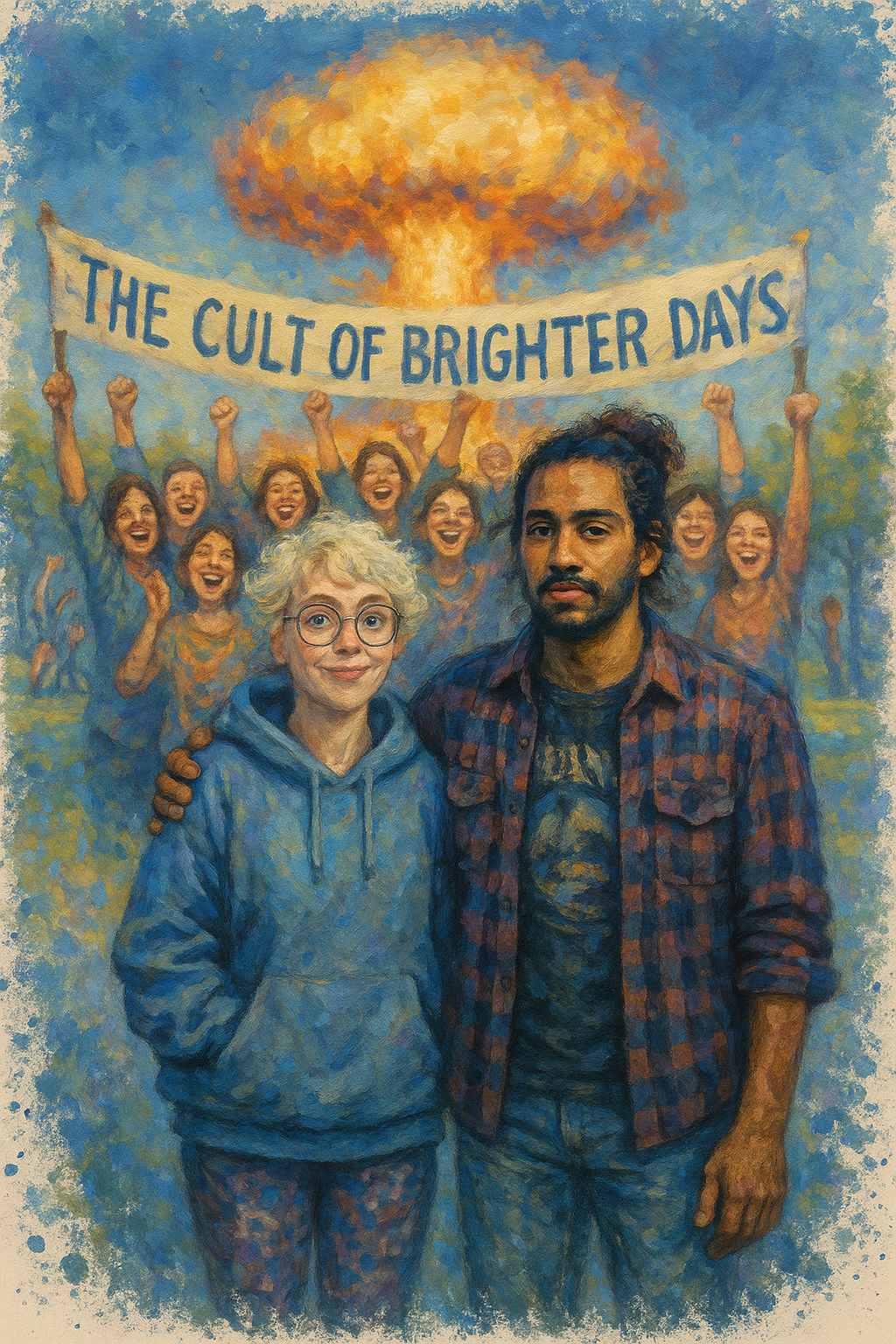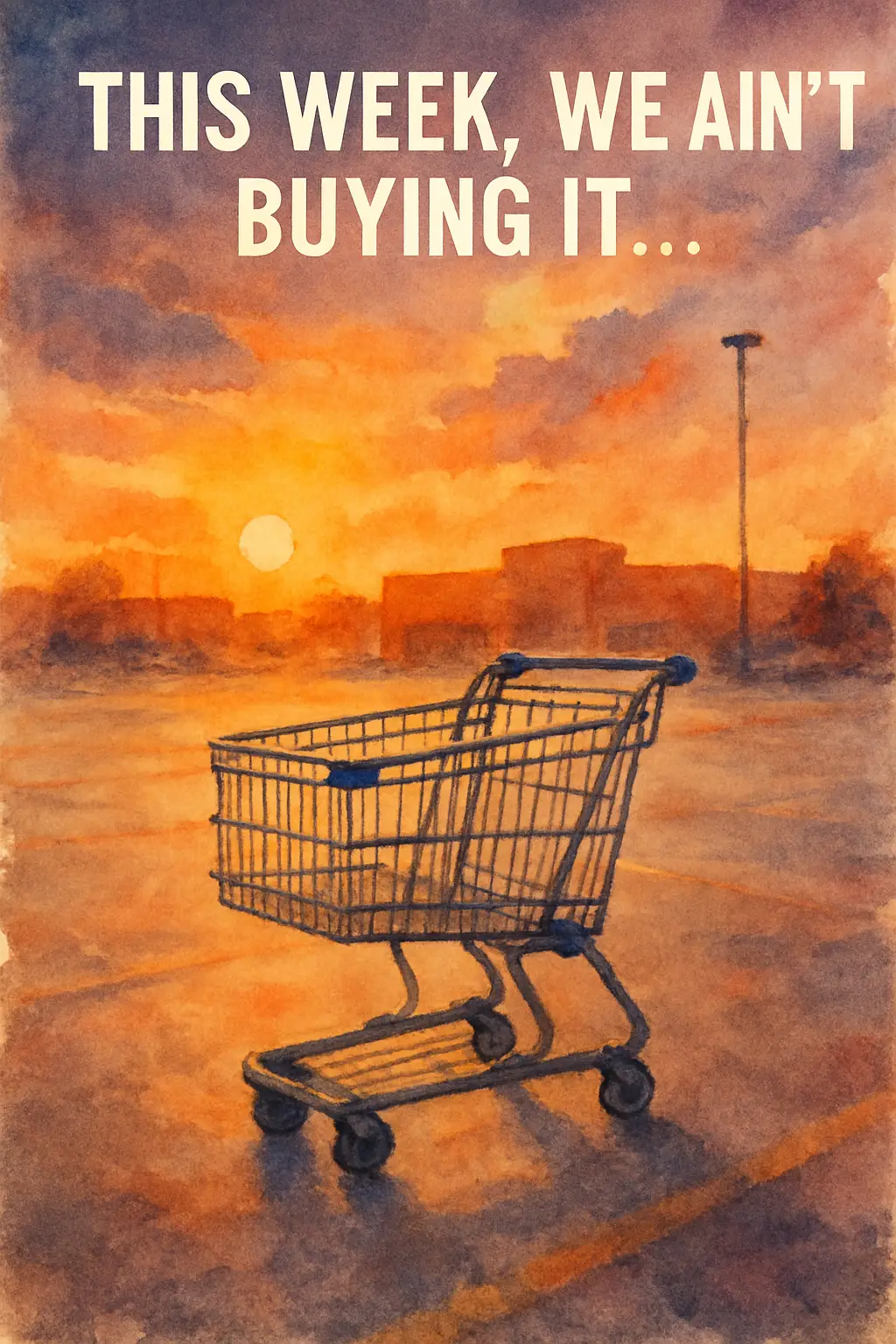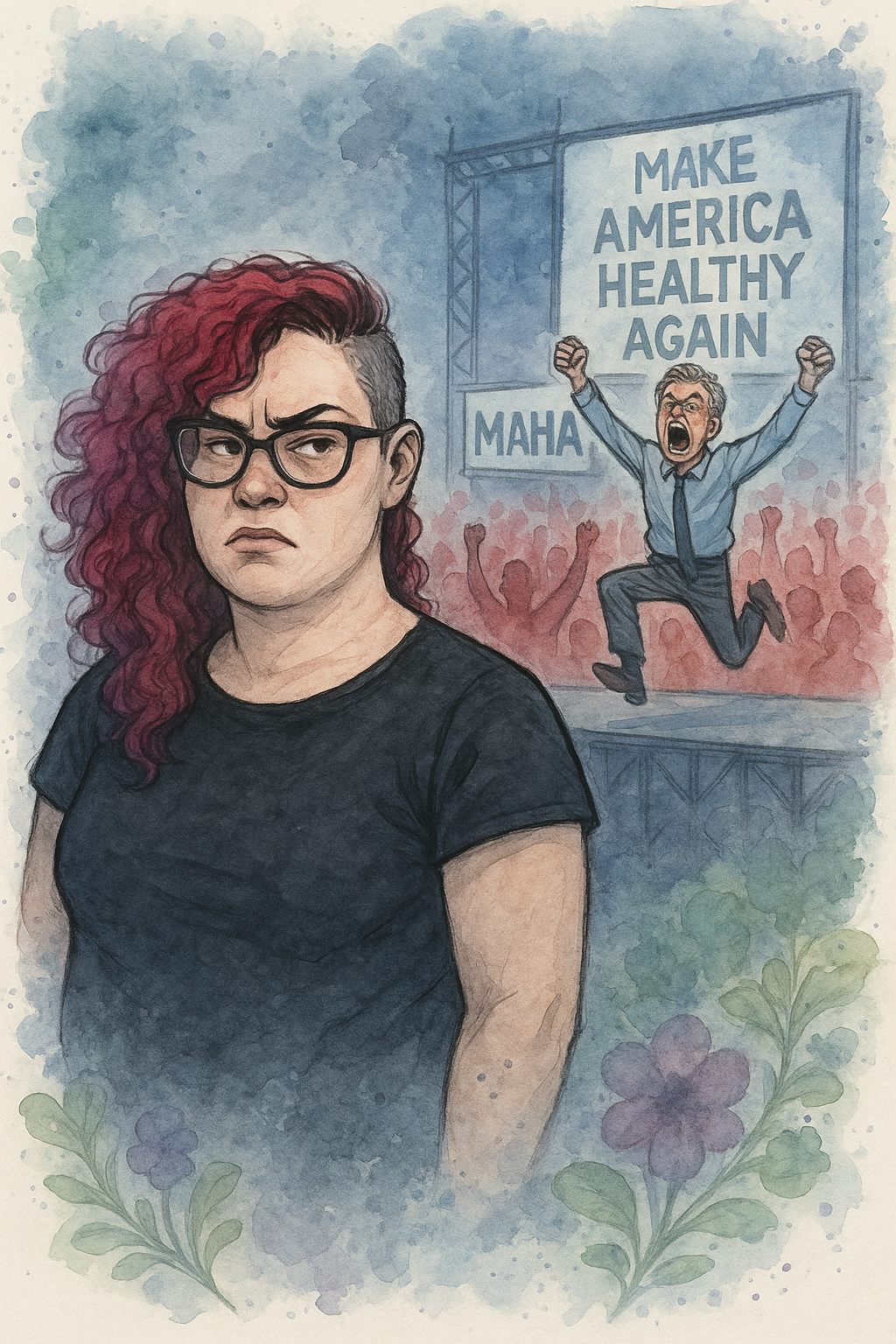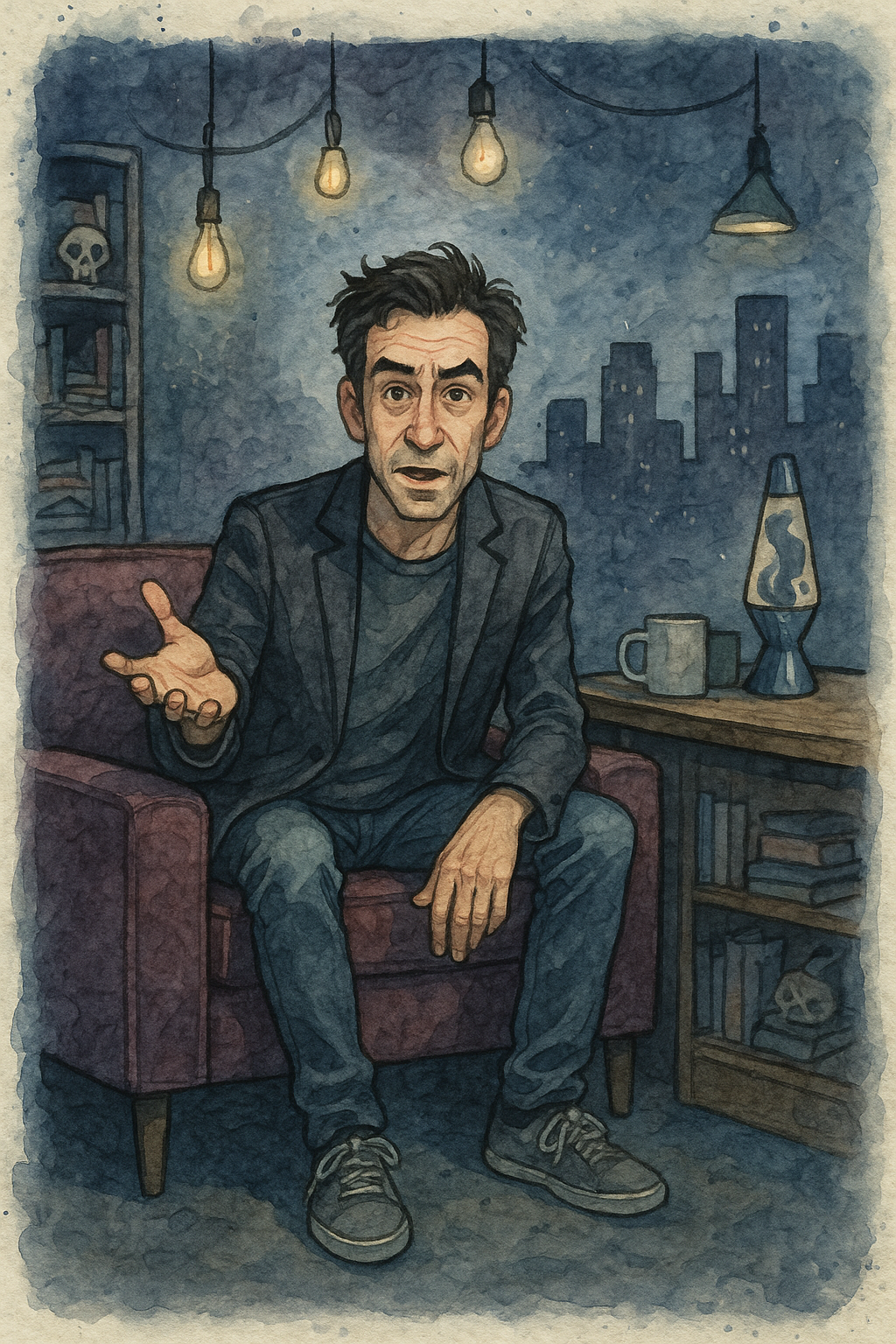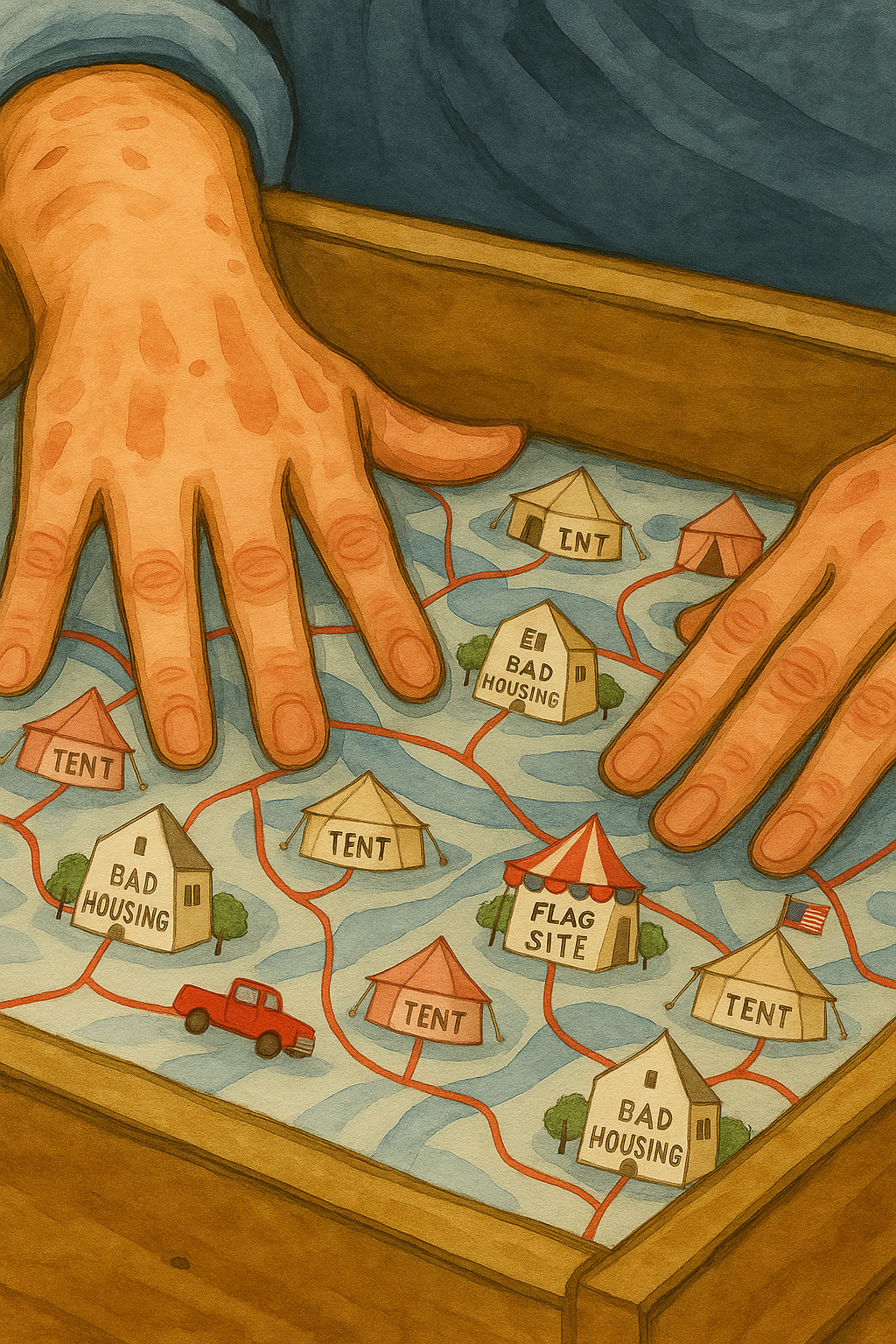Media, Anxiety, and the Absurd Safety of Now
There’s a certain comedy to it all: the world appears to be on fire, yet somehow your coffee is still brewing like nothing happened, your dog’s still whining for a walk, and your left foot is falling asleep because you’ve been doomscrolling on the couch for 90 minutes. The news shouts collapse, and your nervous system responds like a SWAT team just kicked in your front door.
Let’s get one thing clear: you’re not broken. You’re not dramatic. You’re just living in a body that evolved to dodge saber-toothed tigers while currently being flooded by livestreamed suffering from five continents. And that is absurd.
Why Am I So Anxious If Nothing’s Happening to Me?
The False Proximity of Modern Media
When we see trauma—wars, ecological collapse, police violence—it doesn’t just tap politely on our cognitive door. It barrels past your reasoning brain, vaults the emotional velvet rope, and dropkicks itself straight into your limbic system. This isn’t journalism from a respectful distance—it’s trauma porn delivered in 4K.
You are not watching events unfold. You’re being dropped into the scene, handheld camera style. But with no agency, no outlet, and no exit. You’re a ghost at a global catastrophe party, and your RSVP was just trying to check the weather.
Recent headlines weren’t content to whisper apocalypse—they screamed it:
- Los Angeles turned into a militarized nightmare after ICE raids and troop deployments. Freeways closed, helicopters buzzed like angry hornets, and tear gas bloomed like some dystopian perfume ad as reporters were hit with rubber bullets.
- Greta Thunberg and her allies were detained (illegally?) by Israel for trying to sail into Gaza. Her protest lit the internet on fire and dropped a heavy existential anvil on humanitarian activists already teetering on the emotional edge.
You didn’t live these events. But your nervous system doesn’t give a damn about geography. It responds to perceived danger, and right now, your media diet is a tasting menu of existential threat.
And this isn’t new. Gen X got the opening act:
- 1986 Challenger Disaster: Teachers wheeled TVs into classrooms so kids could “watch history.” Instead, they watched live death.
- 1991 Gulf War: CNN turned war into primetime spectacle. Bombs dropped during dinner. Safety never felt quite the same.
- Post-9/11 Loop of Doom: The same three clips played on an endless loop. Many developed PTSD without ever leaving their couch.

Your Brain Doesn’t Know It’s Safe
Biological Responses to Perceived Threats
Your amygdala—bless its hypervigilant heart—is not a fact-checker. It’s a security alarm wired with ancient instincts. It doesn’t know if the danger is across the globe or across the hall. It screams “DANGER!” and flips every anxiety switch in the fuse box.
Vicarious trauma, once considered the occupational hazard of therapists and emergency responders, is now the default setting for anyone with a smartphone and a functioning soul. Meanwhile, Mean World Syndrome—George Gerbner’s once-theoretical warning about media-induced paranoia—has become the collective psychological soundtrack of the information age, convincing us the world is perpetually on the brink. Add in our mirror neurons, those glorious empathy circuits designed for connection, and suddenly you’re not just watching suffering—you’re feeling it, again and again, with no way to intervene or escape.
You’re not overreacting. You’re just an exquisitely sensitive creature being emotionally waterboarded by a 24-hour firehose of curated despair.
It’s Absurd—And That’s Kind of the Point
Holding the Paradox Without Imploding
Here’s the wildest part: While your brain is staging a one-act tragedy called “What If Everything Burns?”, your cat is knocking shit off the counter with the nonchalance of a deity. That contrast? That jarring duality? That’s the moment.
You’re not in Gaza. You’re not on a freeway under martial law. You’re not the one being tear-gassed.
You’re safe.
And it’s not shameful to say that.
It’s necessary.
Modern anxiety is empathy weaponized by proximity. You care, and that makes you human. But humans aren’t built for omniscient suffering. We’re built for community, for connection, for touching things that are real. And yes, we’re also built to laugh at the cosmic joke of forgetting oat milk while the planet boils.
How Do I Cope Without Becoming a Sociopath?
Structure, Action, and Holy Absurdity
You don’t need to shut down or become a stone-hearted husk of your former self to survive. You just need a few tools that were never meant to be DIY’ed in isolation.
Try these:
- Create media boundaries: Turn off autoplay. Set limits. The world won’t collapse if you don’t watch it collapse in real time.
- Anchor to the present: Hold an ice cube. Pet your dog. Listen to birds. Your body can only regulate in the now, not in the news.
- Engage locally: Sweep a sidewalk. Feed someone. Plant herbs in a windowsill. Your power begins where your hands end.
- Talk about it: You’re not “too much.” You’re awake. You need others who understand that paradox is the new baseline for sanity.
That’s where we come in.
At the Cult of Brighter Days, we don’t promise solutions. We promise paradox. We hold absurdity in one hand and action in the other. We laugh loudly, cry honestly, and build anyway.
Come sit by our digital fire.
We have soup. We have memes.
And we have space for your panic, your passion, and your perfectly human meltdown.
INDEX & SUGGESTED READING
Key Terms
- Vicarious Trauma: Absorbing trauma by witnessing others’ pain, not direct experience.
- Mean World Syndrome: Believing the world is scarier than it actually is due to media exposure.
- Amygdala Hijack: Sudden emotional flooding that bypasses rational processing.
Read This if You Want to Survive With Your Soul Intact
- The Body Keeps the Score – Bessel van der Kolk
- Amusing Ourselves to Death – Neil Postman
- The Burnout Society – Byung-Chul Han
- Media and Trauma – E. Ann Kaplan
- Trauma Stewardship – Laura van Dernoot Lipsky
Closing: You’re Not Crazy. You’re Human.
If you feel panicked, hollow, or like you’ve been microwaved from the inside out by existential dread—welcome. You’re reacting to the world like a person who still gives a damn.
And right now, your coffee’s still warm.
Your cat is still rude.
And your breath? Still yours.
Let the absurdity of safety be your anchor.
Then come build with us—out of failure, out of compassion, out of flaming paradox.
You belong here.
Even if you forgot the oat milk.
Especially then.

